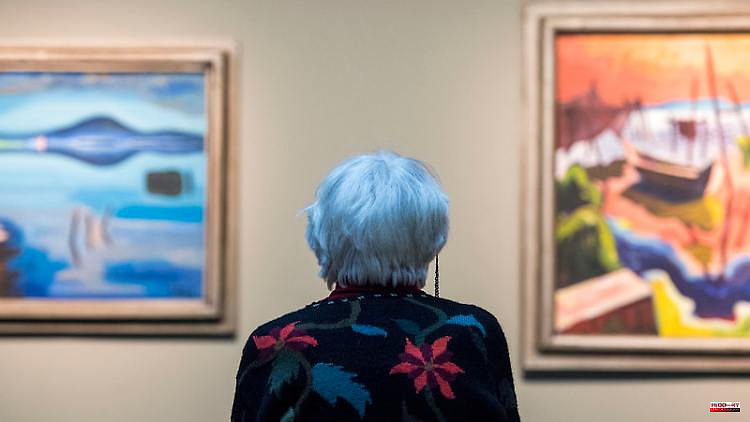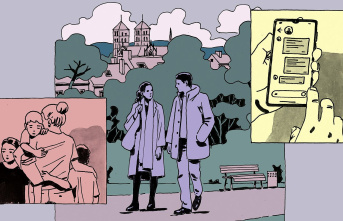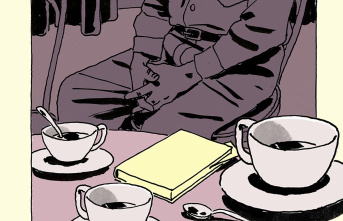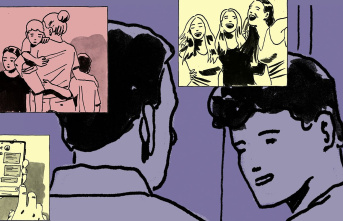The lives of people with dementia become increasingly restricted over time. You can concentrate less and less. But that doesn't mean that nothing works anymore. Small tasks, for example, make people with dementia feel needed. How can family members involve them?
Drugs that cure dementia do not yet exist. In the initial phase, some remedies can delay deterioration. In the case of moderate or severe dementia, however, sedative medication is often used. Drugs are by no means everything when it comes to living as well as possible with dementia. The so-called activation is at least as important for those affected - if not even more important.
Activation can take many forms. It can mean taking on small tasks in the household and garden. Or to pursue activities that appeal to the senses - listening to music from the past or walking barefoot through the garden. At its core, it's about staying active.
"The more active a person with dementia is, it has a positive effect on memory performance," says Laura Mey, a consultant at the Alzheimer's telephone of the German Alzheimer Society. Those affected can retain their skills for longer. And: It often turns out that they can do even more than their relatives suspect.
"If you activate people with dementia well, they can still do a lot independently," says Susette Schumann. As President of the German Society for Activating Therapeutic Care (DGATP), she trains nursing professionals.
Activation is more than "just" spending your free time. It encompasses all of everyday life. For example, people with dementia can sweep the hallway or wipe the dust. "The ability to do that is often still there. But you may not necessarily have the idea and no longer know where the cleaning supplies are," says Laura Mey.
Specific instructions are therefore important: "You can dust the window sill in the living room, here's the rag." You can also give those affected the basket with the freshly washed laundry and lead them to the drying rack. "People with dementia also want to feel useful. That's a good feeling and leads to a certain balance," explains Mey.
Relatives should therefore consider how they can involve the sick person. There are many possibilities, for example with recurring activities. "A task can be, for example, to get the mail from the mailbox," Mey suggests. Doing this every day brings routine into everyday life. Routines are particularly important for people with dementia because they provide security, structure and orientation.
But activation can also mean starting a conversation with one another. Relatives can set stimuli with pictures, smells or objects - best tailored to the preferences of the person with dementia. "If someone liked to sew and was interested in clothing and fashion, it could be a box with different fabrics," says Mey. Look, feel and talk about it - it's good when people with dementia can take things into their own hands.
"You can put different kitchen appliances or tools on the table for people with dementia, let them choose and talk about what you can or have done with them," says Mey. Relatives can also get more suggestions from the Alzheimer's Society's "Alzheimer and You" app.
No matter which activity you choose, it should be as small and manageable as possible. "People with dementia eventually have major problems concentrating. They can hold it for about ten minutes," says Susette Schumann. If it gets too much for those affected, they often drop everything and just walk away, the care expert knows.
It is therefore important not to see the activation as a compulsory exercise. If the person with dementia refuses an activity, family members should accept it. Much more the joy of the thing is in the foreground. This can arise with many activities: painting, listening to music, baking, dancing, small games. It's nice for all parties when there is a shared laugh. "The sense of humor is still there for a long time," says Mey.
Activation is not only carried out by relatives, but also in care facilities. If a person with dementia comes into the home, relatives can pass on biographical information that can help with activation: What did the person like to do in the past, what was important to them? If you have any questions or suggestions, so-called care assistants, which are available in many homes, are the right people to contact.
Another possibility: Family members can be present at an activation in the home. "I often experience that relatives sit down," says Susette Schumann. "As a home, I would even invite you to do so." Because that can be a great help for the son or daughter if they don't really know how to deal with parents with dementia. "Good homes have employees who are trained in dementia, and they take the relatives in with them," says Schumann.
By the way: When it comes to activation, what exactly you do is less important - and more who is doing it. "People with dementia often choose their people, they have a favorite person," says Schumann. This could be family members or caregivers. "They choose those who are good for them."
High-quality social contacts are therefore more important than medication, believes the nursing expert: "If you can establish such relationships, you can sometimes do without medication." According to Schumann, anyone who wants to calm down people with dementia must offer them relationships. "If I react emotionally and look for security, only a living being can give me that and not a pill."
6












